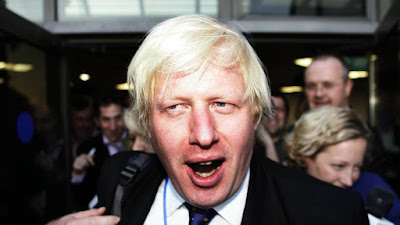That’s not all women leaders. Theresa May was convinced that she was right and, impervious to all calls to change course, steered her government straight onto the rocks. And Margaret Thatcher set a new benchmark in the kind of sociopathic government that has no compassion for the victims of the suffering it inflicts. No. Some women leaders are admirable, others anything but.
The two women who impressed me this week did so because the greatest measure of a politician’s worth is how they react to a crisis, and they have risen strongly to the challenge Coronavirus presents.
Neither of them is Jacinda Ardern. As I’ve written before, Ardern may be the most outstanding leader the world has today. My only regret is that, in New Zealand, she leads a country of just 5 million people. Imagine if she were leading the country of 330 million, currently mismanaged by the overgrown toddler in the White House?
So here are the two other women I feel are handling things well.
One was Nicola Sturgeon, Scottish First Minister. I was impressed by her quiet, firm and yet encouraging way of delivering bad news. She tweeted:
I know lockdown gets tougher as we head into the weekend, and the weather gets better (even by Scottish standards). But it really matters that we stick with it – we’re seeing some progress but it will be quickly reversed if we ease up. So PLEASE, #StayHome – it will save lives.
A little humour helps communicate a message – we all know the (not entirely undeserved) reputation of the weather in Scotland. As for the message itself, it’s firm but optimistic. It’s what one expects from a true leader.
She reminds me of a particularly potent speech by Churchill. He made it after the British victory at the battle of El Alamein, significant because it was the first time the German army had been defeated on land in World War 2, but still minor because the North African theatre was something of a sideshow compared to the titanic clashes that were taking place in Russia.
Churchill knew how to present the success in a way that was encouraging without exaggerating its importance:
Now this is not the end. It is not even the beginning of the end. But it is, perhaps, the end of the beginning.
Isn’t that what Sturgeon was saying? The lockdown’s getting tougher, but we’re seeing progress. It isn’t time to relax, but there’s reason for hope.
 |
| Merkel, Ardern, Sturgeon Good to have more of them |
We are not in the final phase of the pandemic, but still at the beginning. Let us not now gamble away our achievements and run the risk of a setback.
Now there’s a tough statement. Germany’s not even at the end of the beginning, but still at the beginning itself. I’m sure she’s right. I wish some of the men we have leading major nations were prepared to be as open about where we stand.
Donald Trump, for instance, keeps trying to undermine the lockdown restrictions, even supporting demonstrators who (rashly) turn out to protest against them. We know that he believes he needs the economy humming again if he is to have a chance of re-election in November, and to achieve that, he seems willing to sacrifice more lives. That’s despite the US already having more Covid-19 deaths than any other, country in part because of his delays in launching counter-measures.
In the UK, Boris Johnson also worked hard to undermine social-distancing steps. On 3 March, he boasted that he was still shaking hands, even in the hospital he’d just visited where CVid-19 patients were being treated. Providing a useful demonstration of how irresponsible that was, he fell sick with the virus himself. Since he refuses to hand over to someone else even temporarily, but hasn’t been able to work for the last three weeks, the UK is now facing this crisis with no one to exercise the authority of a Prime Minister.
Not that I’m calling on him to hand over to a woman. That might mean the present Home Secretary, Priti Patel. If anyone could make Maggie Thatcher look like an exemplar of gentleness and empathy, it would be Patel.
 |
| Thatcher, May, Patel No need for any more of them |
I’m not alone in noticing this. Jon Henley and Eleanor Ainge Roy in the Guardian, for instance, point out that only some of the male leaders, but all of the women, have handled the epidemic well.
That sounds like a lesson we ought to learn.














